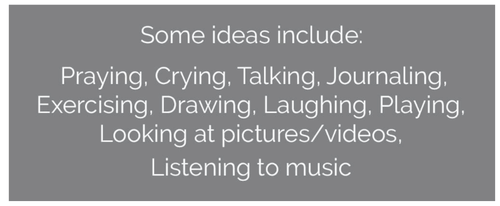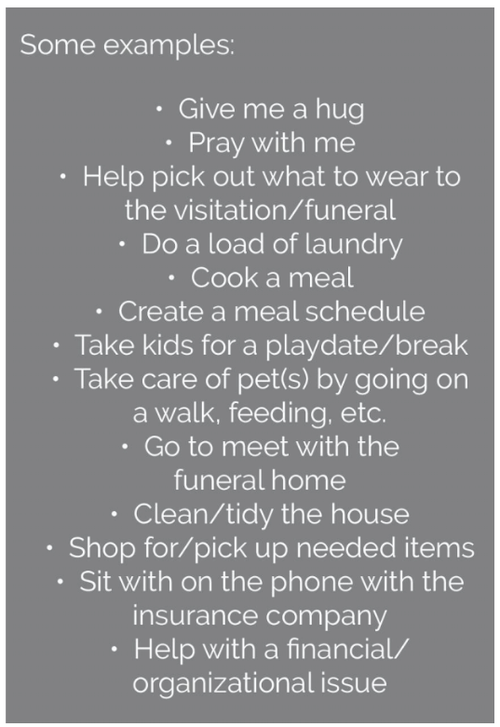Caregiver Coping Cues
Contributing Writer: Audra Milligan, Inheritance of Hope Strategic Initiatives Director
Often times in the haze of terminal illness, we tend to focus on the diagnosed. It’s human nature. But what about the caregiver? At Inheritance of Hope, we understand that to be an equally significant role. Caring for someone who is sick, having new responsibilities, and worrying about the future can be exhausting at the very least. It can quickly lead to burnout. When you are busy caring for the person with a life-threatening illness, who is taking care of you? Check out the concepts below to identify strengths and weaknesses in the delicate role of the caregiver.
Flight attendants instruct parent passengers to put oxygen masks on themselves before they assist children in a crisis situation. These are wise instructions. The best way parents can help children is by first practicing and modeling healthy coping skills themselves.
Take time to grieve. Take time at different points to grieve by yourself or away from your children. Be honest with your children about your need to have a “time out†or time to let out sad feelings. Explain to them that this is a normal part of grief, and that this is helping you to get through this hard time.
Release strong emotions. Use different tools to help you release the strong emotions you feel. Find out which work the best for you:
Often times in the haze of terminal illness, we tend to focus on the diagnosed. It’s human nature. But what about the caregiver? At Inheritance of Hope, we understand that to be an equally significant role. Caring for someone who is sick, having new responsibilities, and worrying about the future can be exhausting at the very least. It can quickly lead to burnout. When you are busy caring for the person with a life-threatening illness, who is taking care of you? Check out the concepts below to identify strengths and weaknesses in the delicate role of the caregiver.
Flight attendants instruct parent passengers to put oxygen masks on themselves before they assist children in a crisis situation. These are wise instructions. The best way parents can help children is by first practicing and modeling healthy coping skills themselves.
Take time to grieve. Take time at different points to grieve by yourself or away from your children. Be honest with your children about your need to have a “time out†or time to let out sad feelings. Explain to them that this is a normal part of grief, and that this is helping you to get through this hard time.
Release strong emotions. Use different tools to help you release the strong emotions you feel. Find out which work the best for you:

Accept help. Often, when people are grieving, friends and relatives will say, “Let me know how I can help.†But if you are feeling overwhelmed with grief, it’s hard to know how to respond. Below is a list you can show to someone who has offered to help.

The road ahead may be long, so practicing self-care early on is going to be very valuable to you and those you are supporting. Put the oxygen mask on yourself first.
